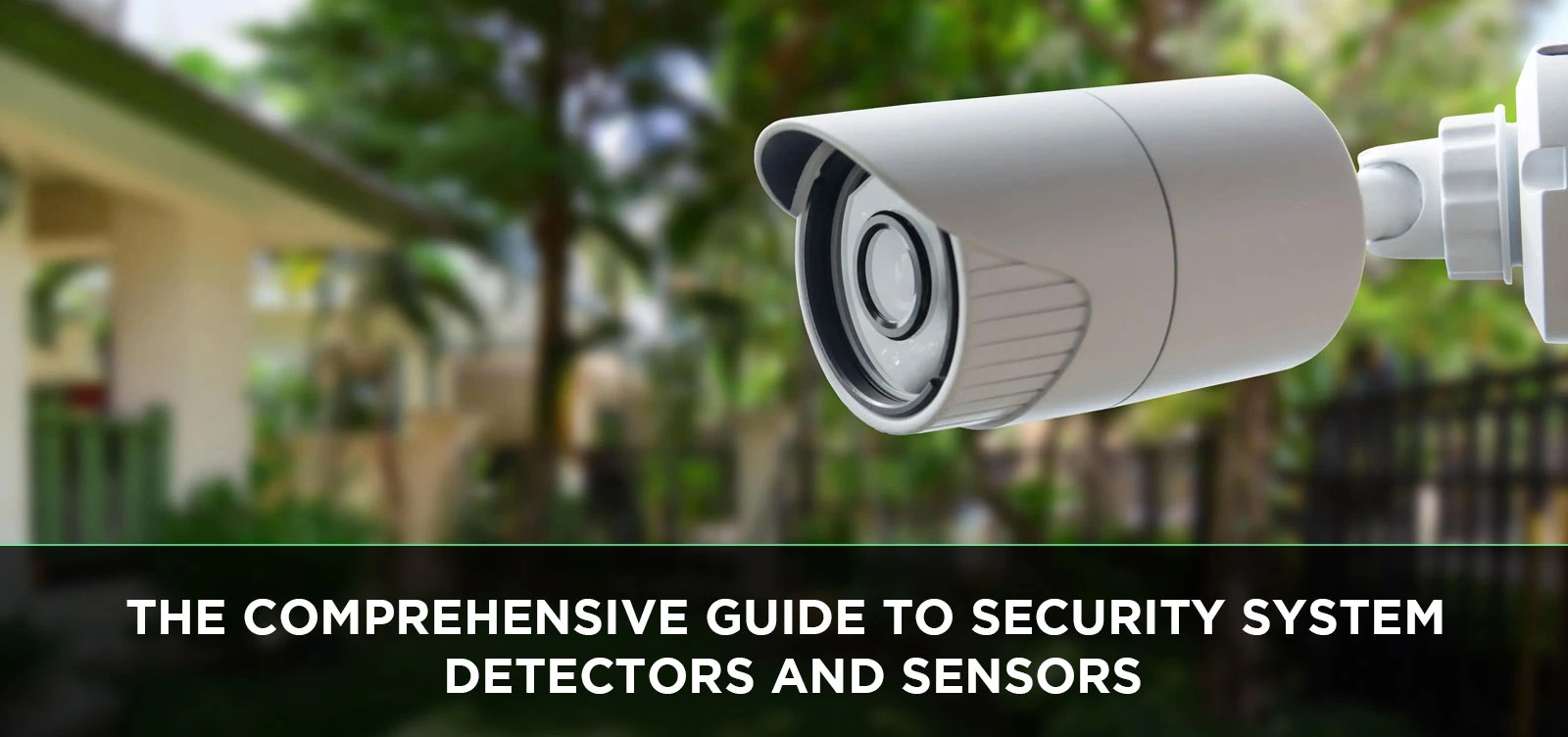In today's ever-evolving world, security is a paramount concern for both homeowners and businesses alike. To fortify your premises against potential threats, understanding the intricacies of security system detectors and sensors is crucial. This comprehensive guide will delve into the world of security technology, providing insights into the types, functionality, and benefits of these essential components.
One of the cornerstones of any effective security system is the use of detectors and sensors. These sophisticated devices are the unsung heroes that work tirelessly to keep your loved ones and assets safe. In this guide, we will unravel the intricacies of security system detectors and sensors, empowering you with the knowledge needed to make informed choices for your security needs.
Understanding Security System Detectors and Sensors
What Are Security System Detectors and Sensors?
Security system detectors and sensors are electronic devices designed to identify and respond to specific environmental changes or events. They are the vigilant eyes and ears of your security setup, capable of detecting various threats such as intrusion, fire, or environmental hazards.
The Significance of Detectors and Sensors
Detectors and sensors play a pivotal role in any security system. They are the first line of defense, alerting you to potential dangers, and initiating a response to mitigate risks. Without these components, your security system would be incomplete and less effective.
Types of Detectors
Security system detectors and sensors come in various types, each tailored to specific security needs. Let's explore some of the most common types.
1 Motion Detectors
Motion detectors use passive infrared technology to detect movement within their field of view. They are ideal for areas where unauthorized access is a concern, such as entryways and hallways.
2 Door and Window Sensors
Door and window sensors are magnetic devices that trigger an alarm when a door or window is opened. They are essential for perimeter security and can be discreetly installed.
3 Glass Break Sensors
Glass break sensors are designed to detect the sound of breaking glass, making them a valuable addition to homes or businesses with glass doors or windows.
4 Smoke Detectors
Smoke detectors are vital for fire protection. They can detect smoke or rapid changes in temperature, providing early warning in case of a fire.
Advanced Sensor Technologies
1 Infrared (IR) Sensors
Infrared sensors use heat signatures to detect movement. They are highly sensitive and suitable for both indoor and outdoor use.
2 Ultrasonic Sensors
Ultrasonic sensors emit high-frequency sound waves and detect changes in the reflected waves. They are often used in motion detection.
3 Microwave Sensors
Microwave sensors transmit microwave signals and analyze the reflections. They are known for their accuracy in detecting movement.
4 Passive Infrared (PIR) Sensors
Passive Infrared sensors detect heat emitted by living beings. They are commonly used in motion-activated lighting systems.
How Detectors and Sensors Work Together
Security systems are a synergy of different components, and detectors and sensors are at the forefront of this collaboration. They work together to provide a layered approach to security, ensuring that no threat goes unnoticed.
Choosing the Right Detectors and Sensors
Selecting the appropriate detectors and sensors is paramount. Consider the following factors when making your choice.
1 Consider Your Security Needs
Assess the specific threats you want to safeguard against, whether it's burglary, fire, or other hazards.
2 Compatibility with Existing Systems
Ensure that your chosen detectors and sensors integrate seamlessly with your existing security infrastructure.
3 Cost-Effectiveness
Balance your security needs with your budget to make cost-effective decisions.
Installing Detectors and Sensors
The installation of detectors and sensors is a critical step in their effectiveness. Depending on your expertise and preference, you can choose between DIY installation or seeking professional help.
1 DIY vs. Professional Installation
Consider your technical skills and the complexity of the system before deciding on the installation method.
2 Placement Tips
Proper placement of detectors and sensors is essential to maximize their coverage and effectiveness.
Maintaining Your Security System
Ensuring the continuous functionality of your detectors and sensors requires regular maintenance.
1 Regular Testing
Periodically test your detectors and sensors to confirm they are working correctly.
2 Battery Replacement
Replace batteries as needed to prevent sensor failures.
3 Cleaning and Maintenance
Keep your detectors and sensors clean to prevent false alarms or malfunctions.
Integration with Smart Home Technology
Detectors and sensors can seamlessly integrate with smart home technology, offering enhanced convenience and control.
1 The Role of Detectors and Sensors in Smart Homes
Discover how these devices can be part of a connected smart home ecosystem.
2 Controlling Security via Mobile Apps
Learn how to monitor and control your security system through user-friendly mobile applications.
Security System Detectors and Sensors for Businesses
Businesses have unique security requirements. Explore how detectors and sensors can protect commercial spaces.
1 Protecting Commercial Spaces
Learn about tailored security solutions for businesses, including access control and surveillance.
2 Integration with Alarm Monitoring
Discover how alarm monitoring services can enhance business security.
Benefits of Security System Detectors and Sensors
Understanding the benefits of these devices is essential in appreciating their role in security systems.
1 Deterrence of Intruders
The mere presence of detectors and sensors can deter potential intruders.
2 Early Detection of Threats
Receive timely alerts, allowing you to respond quickly to potential threats.
3 Peace of Mind
Knowing your property is protected provides invaluable peace of mind.
Common Challenges and Troubleshooting
Despite their effectiveness, detectors and sensors may encounter challenges. Learn how to troubleshoot common issues.
1 False Alarms
Discover how to reduce false alarms and prevent unnecessary disruptions.
2 Sensor Interference
Address interference issues that can affect sensor performance.
Conclusion
In the dynamic landscape of security technology, detectors and sensors stand as sentinels, safeguarding what matters most to you. With a profound understanding of these devices and their capabilities, you can fortify your security and enjoy peace of mind like never before.
Call on (888) 805-5456 to get Security System Detectors and Sensors now!
FAQs
1. Are detectors and sensors the same thing?
No, while they serve similar functions, detectors and sensors are distinct components in a security system.
2. Can I install detectors and sensors on my own?
Yes, many detectors and sensors are designed for DIY installation, but professional installation is also an option.
3. Do detectors and sensors work in extreme weather conditions?
The performance of detectors and sensors can vary based on their design and specifications, so it's important to choose devices suitable for your climate.
4. Are smart detectors and sensors vulnerable to hacking?
Smart devices can have vulnerabilities, but you can enhance their security by following best practices, such as regular software updates and strong passwords.
5. What should I do if my detectors and sensors constantly trigger false alarms?
Check for possible causes of interference, and if the issue persists, consult the manufacturer's troubleshooting guide or seek professional assistance.






